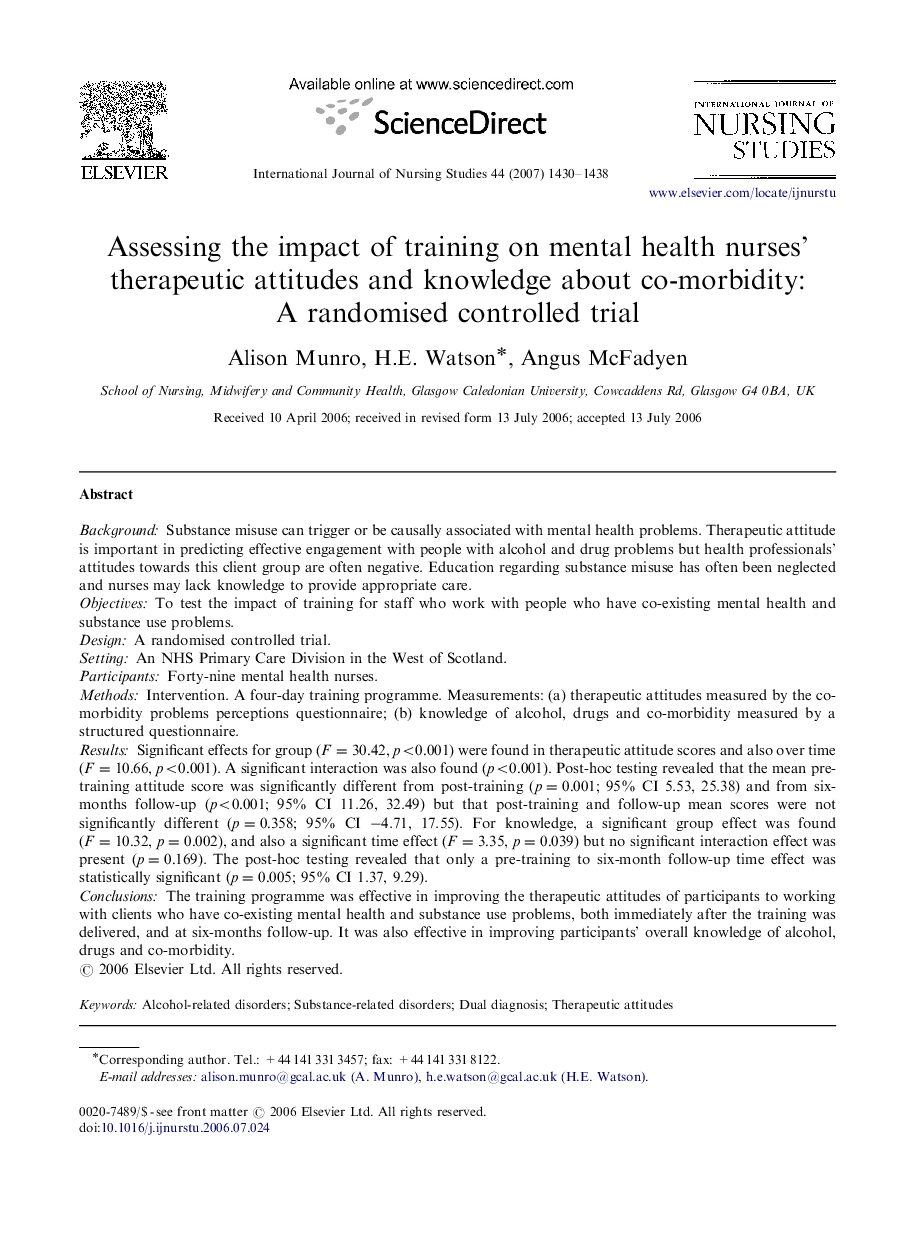| کد مقاله | کد نشریه | سال انتشار | مقاله انگلیسی | نسخه تمام متن |
|---|---|---|---|---|
| 1077477 | 1486613 | 2007 | 9 صفحه PDF | دانلود رایگان |

BackgroundSubstance misuse can trigger or be causally associated with mental health problems. Therapeutic attitude is important in predicting effective engagement with people with alcohol and drug problems but health professionals’ attitudes towards this client group are often negative. Education regarding substance misuse has often been neglected and nurses may lack knowledge to provide appropriate care.ObjectivesTo test the impact of training for staff who work with people who have co-existing mental health and substance use problems.DesignA randomised controlled trial.SettingAn NHS Primary Care Division in the West of Scotland.ParticipantsForty-nine mental health nurses.MethodsIntervention. A four-day training programme. Measurements: (a) therapeutic attitudes measured by the co-morbidity problems perceptions questionnaire; (b) knowledge of alcohol, drugs and co-morbidity measured by a structured questionnaire.ResultsSignificant effects for group (F=30.42F=30.42, p<0.001p<0.001) were found in therapeutic attitude scores and also over time (F=10.66F=10.66, p<0.001p<0.001). A significant interaction was also found (p<0.001p<0.001). Post-hoc testing revealed that the mean pre-training attitude score was significantly different from post-training (p=0.001p=0.001; 95% CI 5.53, 25.38) and from six-months follow-up (p<0.001p<0.001; 95% CI 11.26, 32.49) but that post-training and follow-up mean scores were not significantly different (p=0.358p=0.358; 95% CI −4.71, 17.55). For knowledge, a significant group effect was found (F=10.32F=10.32, p=0.002p=0.002), and also a significant time effect (F=3.35F=3.35, p=0.039p=0.039) but no significant interaction effect was present (p=0.169p=0.169). The post-hoc testing revealed that only a pre-training to six-month follow-up time effect was statistically significant (p=0.005p=0.005; 95% CI 1.37, 9.29).ConclusionsThe training programme was effective in improving the therapeutic attitudes of participants to working with clients who have co-existing mental health and substance use problems, both immediately after the training was delivered, and at six-months follow-up. It was also effective in improving participants’ overall knowledge of alcohol, drugs and co-morbidity.
Journal: International Journal of Nursing Studies - Volume 44, Issue 8, November 2007, Pages 1430–1438